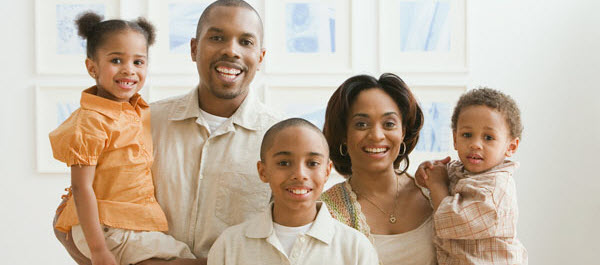I’ve heard quite a few couples say they never disagree in front of their children. And I’m always curious as to why not.
I know the goal for most parents is to protect and shield their children from the harsh realities of life. They want them to remain children and not get too involved in grown folks’ business. I understand. I’m similar in that I don’t want my daughters to worry about the things I worry about as an adult.
However, I’m also good if our girls, now that they are old enough, see my husband and I disagree. Disagreements are a natural part of life. There are also many lessons to be learned whenever children see their parents disagree. Here are just a few:
Disagreements are normal
Two people living under the same roof are not going to see eye-to-eye on every subject. It does children a disservice, in my opinion, if we pretend our lives are perfect. Children will grow up with a warped sense of reality. Now, if you’re the couple who curses, yells and is disrespectful to one another, consider the lesson you might be sending for everyone involved, including you.
Disagreements should be solution focused
Disagreements will happen, but what kind of outcome are you seeking when you do disagree? Children should learn that folks aren’t disagreeing for sport but more so because they are hoping for a certain outcome. A solution should always be somewhere in the midst of the argument.
Disagreements always have a “why”
Explaining to children why you felt the way you did during the disagreement will encourage them to be open and honest about their own emotions and their particular needs.
Disagreements shouldn’t have a winner or a loser
There doesn’t have to be a right or a wrong one. Disagreements are not games where you keep score. It’s simply a subject you were both passionate about that you didn’t agree on. A difference of opinion doesn’t usually make one person right and the other wrong.
Disagreements have two perspectives
Children learn how important each person’s voice is in a disagreement, especially when parents are listening to one another and being clear in their communication. It reminds them how important their voice is as well.
Disagreements provide a chance to demonstrate how to handle anger
One of the greatest lessons we can teach our children is how to control their temper. Children need to know you don’t always get your way, and it’s going to feel frustrating. You can’t always react because you’re upset. You’ll have to calm down, breathe and then proceed. We want to show them there will be regret and hurt if they respond inappropriately.
Children are smarter than we sometimes give them credit for. As parents, we must always be aware of what we’re teaching. Being smart about how we disagree is good for our relationships and our little ones. Our children usually learn most by observing the behaviors of their parents. If they see realistic approaches on how to manage disagreements, believe me they will repeat those behaviors as adults.
BMWK, how do you explain your disagreements to your children?


Leave a Reply